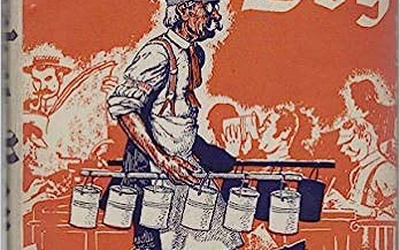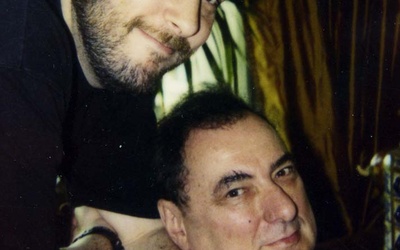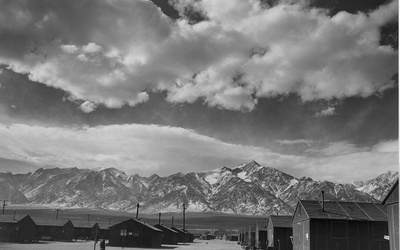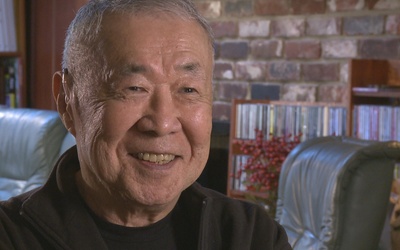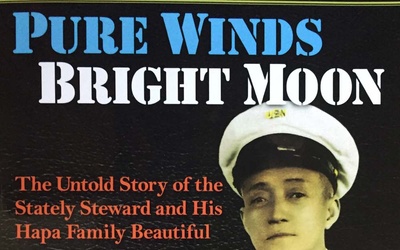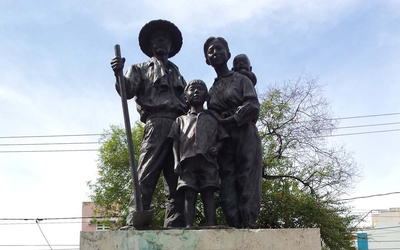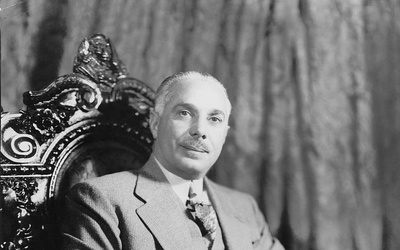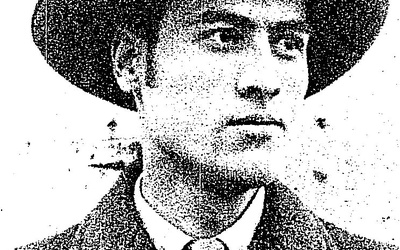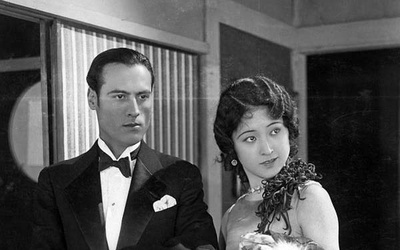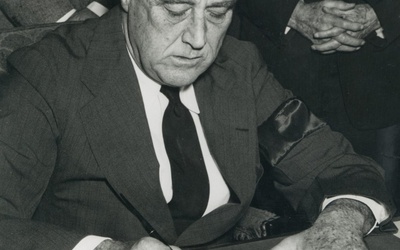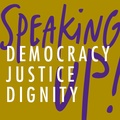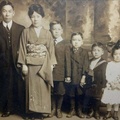
Greg Robinson
@GregGreg Robinson, a native New Yorker, is Professor of History at l'Université du Québec À Montréal, a French-language institution in Montreal, Canada. He is the author of the books By Order of the President: FDR and the Internment of Japanese Americans (Harvard University Press, 2001), A Tragedy of Democracy; Japanese Confinement in North America (Columbia University Press, 2009), After Camp: Portraits in Postwar Japanese Life and Politics (University of California Press, 2012), Pacific Citizens: Larry and Guyo Tajiri and Japanese American Journalism in the World War II Era (University of Illinois Press, 2012), and The Great Unknown: Japanese American Sketches (University Press of Colorado, 2016), as well as coeditor of the anthology Miné Okubo: Following Her Own Road (University of Washington Press, 2008). Robinson is also coeditor of the volume John Okada - The Life & Rediscovered Work of the Author of No-No Boy (University of Washington Press, 2018).
His historical column “The Great Unknown and the Unknown Great,” is a well-known feature of the Nichi Bei Weekly newspaper. Robinson’s latest book is an anthology of his Nichi Bei columns and stories published on Discover Nikkei, The Unsung Great: Portraits of Extraordinary Japanese Americans (University of Washington Press, 2020). It was recognized with an Association for Asian American Studies Book Award for Outstanding Achievement in History Honorable Mention in 2022. He can be reached at robinson.greg@uqam.ca.
Updated March 2022
Stories from This Author
Ernest Meyer: A Progressive Voice in Defense of Japanese Americans
June 26, 2023 • Greg Robinson
In the period following the outbreak of the Pacific War, newspapers played a leading role in fomenting racial prejudice against Japanese Americans by reporting baseless accounts of espionage and fifth-column activity. West Coast columnists such as Harry McLemore beat the drum for mass removal of ethnic Japanese. Outside the West Coast, the distinguished columnist Walter Lippmann repeated rumors of contact between Japanese Americans and Japanese ships, while columnists from Damon Runyon to Westbrook Pegler penned negative pieces. In this hostile …
A Love Letter to My Father
June 18, 2023 • Greg Robinson
Some years ago I wrote a column, “Nunc Pro Tunc,” which recounted my development as a historian and the central influence on it of my late mother Toni Robinson. Today I want to pay tribute to my father, Ed Robinson, and how he has shaped my life and work as a historian of Japanese Americans. It is a little curious to be doing so around Father’s Day, as it is a day whose existence he refuses to recognize: “I don’t …
Ansel Adams and Born Free and Equal: Another View
June 5, 2023 • Greg Robinson
A number of scholars, including Nancy Matsumoto, Jasmine Alinder, and Elena Tajima Creef among others, have discussed photographer Ansel Adams’s landmark 1944 volume Born Free and Equal. The story behind the book remains fairly obscure, especially Adams’s connection with Harold Ickes. Ansel Adams was nearly forty years old and already a famed photographer, renowned for his classic Western landscapes, when World War II broke out. Too old for military service, he took on various civilian functions. Perhaps paradoxically, it was …
Paul Takagi: A Centenary Remembrance
May 3, 2023 • Greg Robinson
May 3, 2023 marks the 100th birthday of the late Bay Area scholar and advocate Paul Takagi. As professor at UC Berkeley, Paul helped shape the university’s School of Criminology, adopting the “crime and social justice” approach of Radical Criminology. In Fall 1969, he taught the first course in Asian American Studies at Berkeley, helping usher in a new field of study nationwide. Meanwhile, Paul and his wife Mary Ann Takagi, together with Raymond Okamura, helped lead the fight to …
Of Inomatas and Kingis: The Story of a Remarkable Family
March 30, 2023 • Greg Robinson
If ever there was an award offered for the most remarkable Japanese American family saga, one formidable contender would be that of the Inomata clan, as revealed in the book Pure Winds, Bright Moon, by Kinji Inomata, as well as supplementary documents. Their history defies simple-minded ideas about Japanese Americans, their lives, and their interactions with other groups. The family story starts with a Japanese boy named Kenji Inomata. He was born in 1885 in Kashiwazaki, Niigata, Japan, the son …
Postwar Japanese Emigration to the Dominican Republic — Part 2: The Japanese American Response
March 13, 2023 • Greg Robinson
Read Part 1 >> As mentioned, the Japanese government’s postwar project to resettle Japanese citizens in the Dominican Republic, which was troubled from the outset, collapsed in mid-1961 after the assassination of Dominican strongman Rafael Trujillo. Within a year, more than half the people involved returned to Japan, while the largest fraction of the others moved to Brazil or other countries. One of the few shining elements of the story is that of the impressive mobilization of the Japanese American community …
Postwar Japanese Emigration to the Dominican Republic — Part 1: A Tragic Tale
March 12, 2023 • Greg Robinson
A tragic episode in the transnational history of Nikkei in the Americas is that of the Japanese colonists who settled in the Dominican Republic in the 1950s and their return after 1961.1 The story of postwar Dominican colonization has been extensively recounted in different ways (and languages), by scholars such as Valentina Peguero, Toake Endoh, Alberto Despradel, and Chutaro Kobayashi, but it is useful to offer here some larger context, and then to speak of a rare positive aspect of these …
Yoshie Fujiwara and Japanese Americans II: A Day at the (Olympic) Races
Feb. 24, 2023 • Greg Robinson
Read Part 1 >> In the period after 1932, Yoshie Fujiwara made Japan his primary residence. In these years, he founded the Fujiwara Opera company, which thereafter remained central to his artistic and business activity. He later asserted that in its first years, the new company suffered annual losses of $240,000, as Japanese audiences were hesitant to buy tickets for opera performances, so he had to take outside singing gigs to help make up deficits. Meanwhile, amidst the Japanese military …
Yoshie Fujiwara and Japanese Americans I: A Night at the Opera
Feb. 23, 2023 • Greg Robinson
Yoshie (AKA Yosie) Fujiwara, a legendary tenor and impresario whose career spanned decades, was the biggest name in grand opera in Japan over the 20th century. For much of that period, he served as director of the Fujiwara Opera Company. Through his activities as singer, director, and teacher, Fujiwara “almost singlehandedly…kept opera alive in Japan,” in Newsweek magazine’s phrase. His North American tours aroused great excitement among Japanese Americans, who dubbed Fujiwara “Our Tenor,” and helped inspire their interest in …
The Morgenthau Diaries and FDR's Troubling Views of Minorities
Feb. 1, 2023 • Greg Robinson
In a recent column, I described the detective work that I did to clear up a seemingly contradictory passage in a book by John Franklin Carter about Franklin Roosevelt's attitudes toward Japanese Americans. On another occasion, I had to deal with an even trickier piece of evidence that revealed FDR’s opinions concerning religious minorities. It required me not only to draw on my historical training, but on my experience working as a legal assistant. The question first arose when I was …

